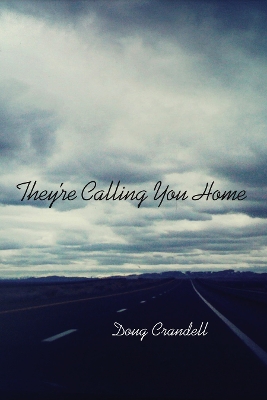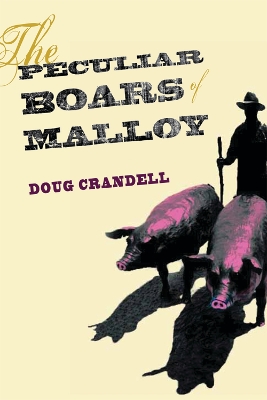Switchgrass Books
2 total works
Doug Crandell is a maestro in multiple genres: the author of critically-acclaimed true crime books, devilishly charming memoirs, and tragicomic works of fiction about small-town life that are leavened in equal measure with poignancy and humor.
Enter They're Calling You Home, Crandell's latest novel. This is the story of Gabriel Burke, a writer who is alienated from everyone he loves for exposing a discomforting family secret in a bestselling memoir. Divorced from his wife, estranged from his daughter, and loathed by his alcoholic brother, Burke must confront all of them when he returns to his hometown in Smallwood, Indiana to chronicle the story of a gruesome mass murder there.
Thus begins this intricately woven tale of redemption and forgiveness, of men paying the wages of masculinity, of sons coming to grips with the sins of their fathers, and of one writer grappling with the burdens of journalistic integrity. Throughout this deftly crafted work, secrets present a hall of mirrors through which Burke must constantly navigate: the secret of his father's sex crimes, the furtive steps his family takes to deny them, and the surreptitious efforts of State and local officials as they try and cover up the murder case he's investigating. Part road trip, part who-dunnit, part voyage of self discovery, Crandell's moving novel is ultimately the story of a journey in which the only possible destination is its starting point—home.
This Sherwood Anderson award-winning farcical novel follows two teenage boys living on a farm in rural Indiana. Their father—a diminutive man and the laughingstock of their small town—purchases two boars in an attempt to impress his neighbors and demonstrate, by proxy, his masculinity. The boars, however, turn out to be resolutely gay and deeply committed to each other, setting off a ridiculous chain of events that brings the spotlight and accompanying media circus to Malloy.
In the midst of all of the madness is the boys' ongoing, and at once heartbreaking and hilarious, quest to find their wayward mother through a series of touching and humorous flashbacks. Disappointed in their pitiful father, the boys cling to an unrealistic fantasy of their mother, who is in actuality a promiscuous drifter.
Crandell's depiction of the gay boars provides much of the book's humor and, unexpectedly, its moral compass as he weaves significant and subtly articulated themes of animal rights and gay rights. The Peculiar Boars of Malloy captures the best traditions of American satire, while turning the conventions of the coming-of-age novel on its head. Crandell's heart and humor will be appreciated by lovers of satire and animals and those readers possessed of a uniquely Midwestern sense of the ridiculous.

